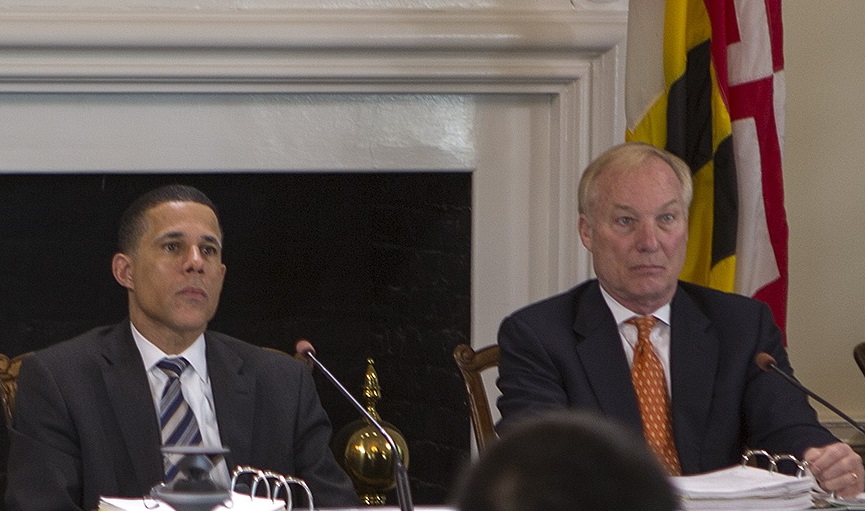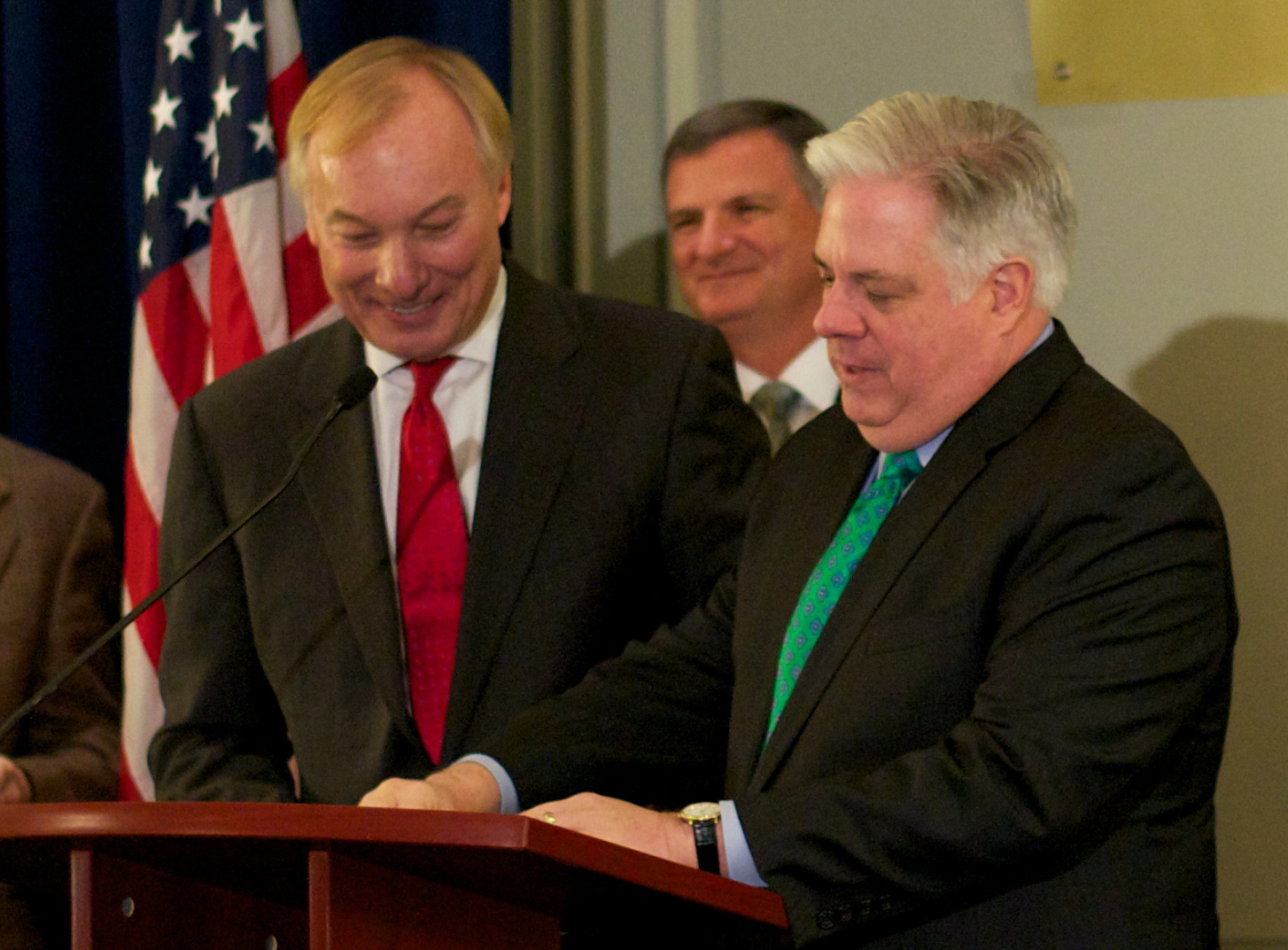By Megan Poinski
Megan@MarylandReporter.com
The best way to improve Maryland’s transportation system is to lock down the transportation trust fund, and start raising $800 million per year in new funds to maintain infrastructure, a state transportation committee is recommending to the governor and General Assembly.
The Blue Ribbon Commission on Transportation Funding put the final touches on its report Monday.
It has two major recommendations. The first is to protect the transportation trust fund so its proceeds can only be used for transportation projects – or, as Commission Chairman Gus Bauman put it, putting the trust back into the fund. The second recommendation is to raise $800 million annually in new revenue for the fund. A spreadsheet lists 27 different ways to raise more money, along with how much each option will bring in.
Senate Majority Leader Robert Garagiola, a commission member, proposed legislation last week that will make some of these options law. His bill proposes a constitutional amendment to lock up the trust fund, increase gasoline taxes 10 cents, and raise vehicle registration costs. Garagiola said other legislators may have other ideas and options.
The transportation trust fund – which gets its money from taxes and fees dealing with vehicles, ports and aviation – is intended to be used for Maryland Transportation Department spending. However, when finances are tight, governors and lawmakers have often taken funds out of the account and used them for purposes not related to transit. According to the draft report, since 1984, about $997 million has been transferred from the account and not replenished.
Protecting fund most important
On Monday, commission members overwhelmingly agreed that protecting the trust fund is the most important thing.
“If money for transportation is being siphoned off, you are not putting money where it needs to be,” said Jackie Jeter, president and business agent of the local Amalgamated Transit Union.
Bauman said that without new protections, raising new money for the trust fund would be like “rearranging deck chairs on the Titanic.”
The commission’s report includes both a recommendation for a constitutional amendment to lock up the funds, as well as an alternate recommendation for a similar law passed by the General Assembly to protect them. Bauman said that he wrote in the provision simply because it is a long and difficult process to amend the state constitution, and there is no assurance of the outcome. A law passed by the legislature requiring protection of the transportation trust fund can easily be repealed, but it can be done as a stopgap measure right now.
The recommended law would require the governor and General Assembly to both declare a public fiscal emergency before money could be taken from the trust fund for non-transportation purposes.
The commission is recommending that the state take measures to raise $600 million in new revenue, then leveraging that for $200 million more in bonds. Most of the potential revenue raisers have to do with transportation – increasing gas taxes; upping fees for vehicle registrations, titles, or driver’s licenses; raising transit fares or tolls; increasing fees for traffic citations, emissions inspections and other services at the Motor Vehicles Administration; and increasing taxes for rental cars and vehicle services. Also included on the list are increasing general sales and use taxes and corporate income taxes, placing the proceeds in the transportation trust fund. After a lengthy discussion, commission members decided to leave all those options on the spreadsheet.
“It’s just an informative sheet saying that these are some options,” Garagiola said. “There may be more out there.”
Two key messages
Beside the recommendations, committee members said the report needs to send two distinct messages to the General Assembly and governor. One is that it is time for the state to start setting real priorities when it comes to transportation rehabilitation, and that the money needs to be used in the most logical way. After the report is transmitted to the governor and General Assembly, Bauman said that the commission will continue to meet to come up with recommendations on those priorities. However, securing the funds is the commission’s top job.
“We need more money, and we need to spend it smarter,” said Planning Secretary Richard Hall. “And we will not settle what ‘smarter’ means today,”
Commission members also said that their report must explain how truly vital transportation work is. Having good transportation provides Marylanders access to jobs, education, and things that enhance quality of life. Without it, access to “the good life” will become limited, several said.
Del. Carolyn Howard, a Prince George’s County Democrat, said that every single government department has the same complaint. Nobody has enough money to meet all of the needs out there. Keeping that in mind, she said, the report needs to be explicit and clear.
“We can really just change the title of this from ‘Transportation’ to ‘Education,’” she said. “That’s why we need to go ahead and put our best thoughts in here.”







Recent Comments